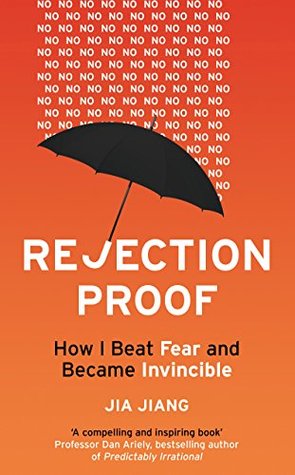More on this book
Community
Kindle Notes & Highlights
by
Jia Jiang
Read between
August 7 - August 16, 2018
3. Rejection Has a Number: Every rejection has a number. If the rejectee goes through enough rejections, a no could turn into a yes.
Asking why can open up a whole new channel of understanding and possibility between a requester and a requestee. But so can retreating to ask, “If you can’t do this, can you do something else?” In asking these questions again and again, it became obvious to me that there is often a lot more room to maneuver around a no than I’d ever realized. Every no is actually surrounded by a whole bunch of interesting but invisible yeses that it was up to me to uncover.
When I gave people a reason for my request, however far-fetched, I was far more likely to get a yes.
rejection is an experience that it is up to you to define. In other words, it means only what you choose it to mean. The relationship you have with a rejection can be negative or positive, and it all depends on which way you spin it for yourself.
“How do I avoid rejection?” but “Is my idea worthy of rejection?”
“The only thing I dread [is] not to be worthy of my sufferings.” The same goes for rejection. Is your dream bigger than your rejections? If it is, maybe it’s time to keep going, instead of giving up.
Rejection is human.
Rejection is an opinion.
Rejection has a number.
Ask “why” before good-bye.
Retreat, don’t run.
Collaborate, don’t contend.
We often deprive ourselves of the freedom to ask for what we want in fear of rejection and judgment. But amazing things often happen only after we take the first step.
Our inner need for approval-seeking forces us to constantly look for acceptance from other people. Yet the people from whom we need acceptance the most is ourselves.
Though I do believe that instead of focusing on learning sales techniques, if I can conquer fear first and start having fun, then everything, including using other sales techniques, would become much easier.
At first, I worried about the things I couldn’t control, such as people’s reactions and their perceptions of me.
Later on, when I started to give my full focus to what I could control, such as making eye contact, asking “why,” listening, not running after a no, I found myself becoming more effective and confident in everything I did. I became more fearless in approaching strangers and venturing into the unknown.
That’s what my rejection journey taught me: to play my best, and not worry about the results—even when the stakes seem impossibly high.


